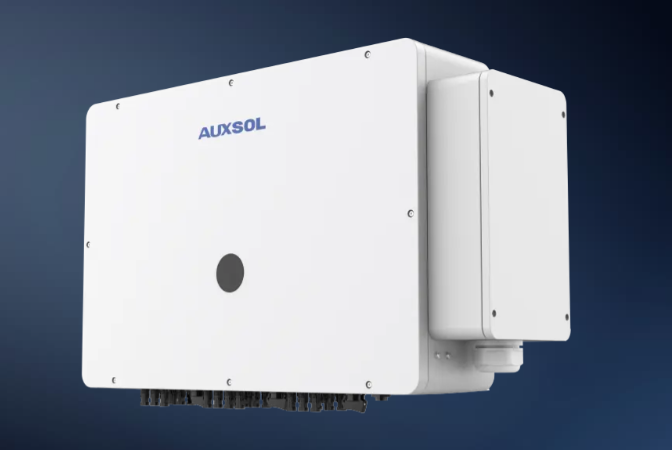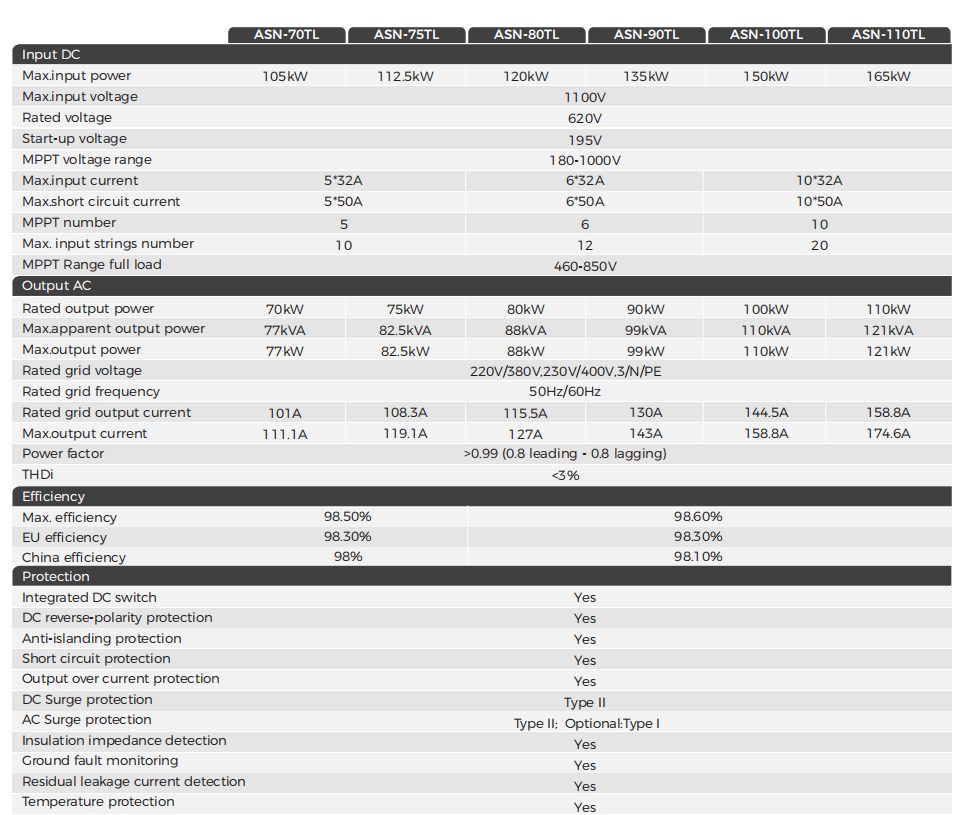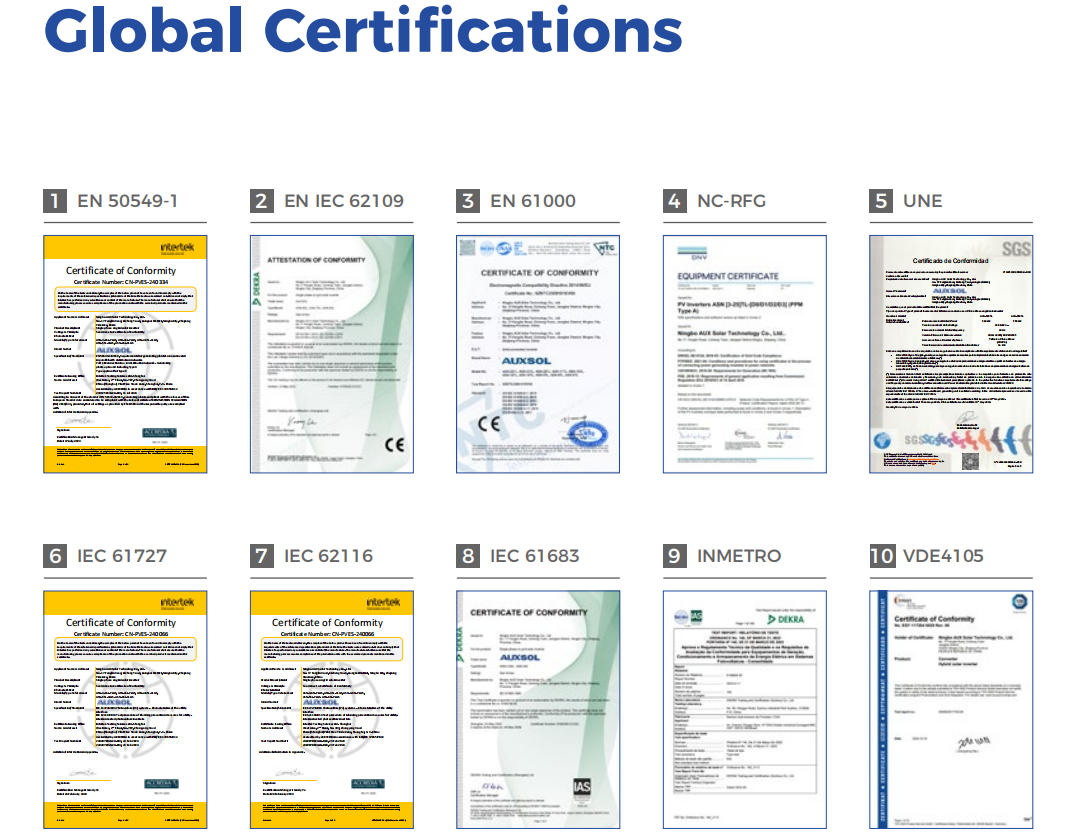What Is a C&I Solar Inverter?
A C&I solar inverter is a critical component in large-scale solar power systems designed for businesses, factories, schools, warehouses, or any commercial property. It converts the direct current (DC) generated by solar panels into alternating current (AC) — the usable form of electricity required to power appliances, machinery, and feed excess energy back into the grid.
Unlike residential inverters, commercial and industrial (C&I) inverters are built to handle higher power outputs and operate under more demanding conditions. They are designed for efficiency, reliability, and scalability, making them essential for solar systems ranging from tens of kilowatts to megawatt capacities.
Key Features of C&I Solar Inverters
High Power Capacity: C&I inverters typically range from 10kW, supporting medium to large-scale operations.
Three-Phase Output: They offer three-phase power output, which is more efficient for C&I loads and reduces power loss.
Advanced MPPT Technology: Maximum Power Point Tracking (MPPT) ensures the inverter extracts the maximum possible power from each panel array, even under shading or varying light conditions.
Remote Monitoring: Most C&I inverters come with built-in monitoring systems or connect to platforms that allow real-time tracking of performance, fault alerts, and energy yield.
Grid-Tied Capability: These inverters can synchronize with the utility grid, enabling businesses to sell excess energy back or maintain energy flow when solar production is low.
Benefits of Using a C&I Solar Inverter
-
Energy Cost Reduction: Converts solar energy into usable electricity, cutting down monthly utility bills.
-
Improved ROI: Higher efficiency and durability lead to long-term financial gains.
-
Sustainability Goals: Helps businesses lower their carbon footprint and meet ESG standards.
-
Scalability: Easily integrates into expanding systems, whether you're powering a factory or a campus.
-
Enhanced System Protection: Built-in safety features such as anti-islanding, surge protection, and fault detection.
How to Choose the Right C&I Inverter
When selecting a commercial solar inverter, consider the following:
System Size and Power Needs: Match the inverter size to your energy demands. Oversizing or undersizing can reduce efficiency.
Inverter Type
-
On-grid Inverters: Ideal for uniform panel arrays.
-
Central Inverters: Best for very large installations.
-
Hybrid Inverters: Allow integration with battery storage systems.
Efficiency Ratings: Look for high efficiency (above 97%) to ensure minimal energy loss.
Warranty and Support: Choose brands offering long-term warranties (5–10 years) and reliable local support.
Compliance and Certifications: Make sure the inverter meets local grid codes and industry certifications such as UL, IEC, or CEC approval.
AUXSOL Commercial and Industrial(C&I) Solar Inverter Solutions
When it comes to high-performance solar inverters for commercial and industrial applications,
AUXSOL stands out as a trusted brand offering reliable, intelligent, and cost-effective solutions. Among its C&I portfolio, the
Three-phase On-grid Inverter ASN-(70-110)TL series is engineered to deliver superior performance in large-scale solar energy systems.
Product Highlight: AUXSOL ASN-(70-110)TL | Three-phase On-Grid Inverter with 5/6/10 MPPT
AUXSOL's ASN-(70-110)TL three-phase on-grid inverter is designed specifically for commercial and industrial solar projects that demand high efficiency, system flexibility, and long-term reliability.

Key Features and Advantages:
-
High Efficiency & Early Start-Up: Supports 1.5x DC/AC oversizing and starts at just 195V, enabling earlier power generation and more total energy yield throughout the day.
-
Smart Voltage Regulation: Equipped with ultra-wide grid voltage design and automatic voltage regulation, the inverter maintains stable output even in fluctuating grid environments.
-
Enhanced Safety & Durability: Rated IP66 for superior protection against dust and water ingress, making it suitable for harsh environmental conditions. Built-in AFCI (Arc Fault Circuit Interrupter) helps prevent electrical fires, enhancing operational safety.
-
No Power Derating at 45°C: The system delivers full performance even in high-temperature conditions, ensuring higher yields with no energy loss during hot weather.
-
Flexible MPPT Options: With 5, 6, or 10 MPPTs, system designers have more flexibility to optimize panel layout across different rooftop conditions and orientations.
This model is an ideal fit for solar farms, industrial buildings, commercial rooftops, and any C&I application requiring robust performance and high ROI.
Ready to power your business with high-efficiency solar solutions? Explore more about
AUXSOL’s C&I inverter range or
contact our expert team for a customized consultation. Let’s build a smarter, cleaner energy future — together.
AUXSOL Three-phase On-Grid Inverter Specifications
Compliance and Certifications for AUXSOL C&I Solar Inverters
AUXSOL takes compliance seriously. All of its inverters undergo comprehensive third-party testing and are certified by recognized global institutions such as SGS. Whether your project is in North America, Europe, or Asia, AUXSOL offers products that meet or exceed regional and international standards.
Want to verify certifications? Visit
AUXSOL’s official certifications page to preview or download the product certificates and test reports. This transparency gives you peace of mind when choosing inverters for your commercial or industrial energy system.
Final Thoughts
Commercial solar inverters are the backbone of any large-scale solar power system. By choosing the right inverter tailored to your needs, businesses can maximize their solar energy harvest, reduce operational costs, and advance toward a greener future.
Whether you're planning a new installation or upgrading an old system, consulting with AUXSOL, a qualified solar supplier, ensures your inverter selection supports your performance and ROI goals.



